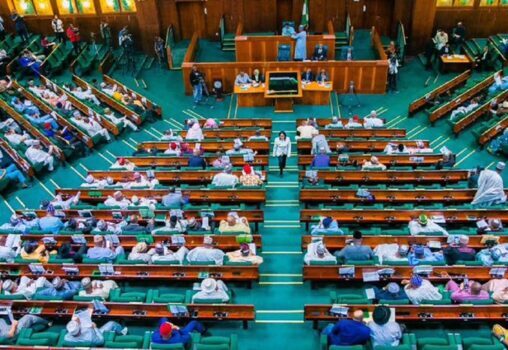 The House of Representatives on Thursday voted down a bill that sought to expand the scope of Islamic law in the country’s 1999 constitution.
The House of Representatives on Thursday voted down a bill that sought to expand the scope of Islamic law in the country’s 1999 constitution.
The constitutional amendment bill, sponsored by Representative Aliyu Missau, aimed to remove the word “personal” from sections 24, 262, 277, and 288 where “Islamic law” is mentioned, effectively broadening its application beyond personal matters.
Currently, Section 262 (1) of the constitution limits the Sharia Court of Appeal’s jurisdiction to “civil proceedings involving questions of Islamic personal law.”
During the heated debate, Missau argued that the constitution’s current restrictions failed to anticipate modern developments in Islamic jurisprudence, citing the establishment of Jaiz Bank in 2003 as an example of Islamic commercial law’s growing relevance.
The proposed legislation sparked a clear regional divide in the House, with northern legislators supporting the expansion while their southern counterparts firmly opposed it.
Representative Solomon Bob from Rivers State warned that removing the word “personal” would extend Islamic law’s reach beyond the original intent of the constitution’s framers. In contrast, Abdul Hakeem Ado from Kano emphasized the need to accommodate Islamic commercial law.
Representative Bamidele Salam from Osun State offered historical context, noting the contentious nature of these provisions during previous constitutional assemblies. He reminded lawmakers that the military had intervened in 1979 to restrict Islamic law’s application to personal matters.
“We must be careful with any changes to the constitution that could further widen divisions in Nigeria,” Salam cautioned, adding that existing laws already address the concerns raised by the bill’s proponents.
The bill was ultimately rejected through a voice vote presided over by Deputy Speaker Benjamin Kalu.

Supreme Court Invalidates National Lottery Act, Restricts Enforcement To FCT
House Of Reps Rejects Six-Year Single Term Bill For President, Governors
Senate Approves ₦1.77 Trillion Loan Request By President Tinubu
Finland Arrests Pro-Biafran Agitator Simon Ekpa On Terror Charges